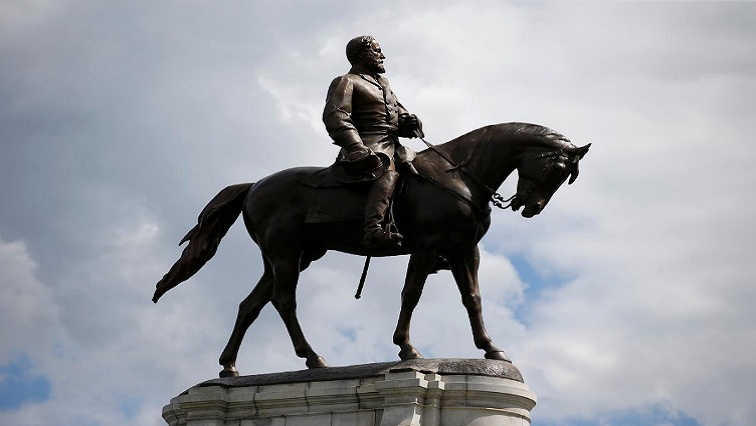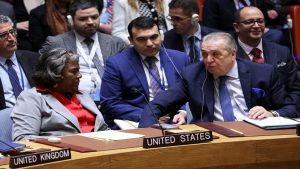Amid increasingly peaceful protests and an easing of curfews around the United States, protesters there and around the world have focused their energies on the removal of symbols of racism and oppression.
Civil rights groups have long called for the removal of Confederate monuments in the US, with protestors already toppling a statue of a general in Richmond, Virginia, that has stood since 1891.
Similar scenes are playing themselves out in cities across Europe in the aftermath of George Floyd’s killing at the hands of police in Minnesota last month.
Demonstrations
Thousands of peaceful protestors with crowds swelling at the weekend, populating cities across the United States – an energy that’s now being trained on effecting change, starting with the removal monuments to the slave-owning South – like the statue of Confederate General Robert E. Lee in Richmond, Virginia.
Governor of that State, Ralph Northam says: “I believe that when we learn more, we can do more. And I believe that when we learn more, when we take that honest look at our past, we must do more than just talking about the future. We must take action. So I am directing the Department of General Services to remove the statue of Robert E. Lee as soon as possible”.
Protestors used ropes to topple a bronze of Confederate General William Carter Wickam in the same city this past weekend, while similar statues or roadways have or are being considered for removal or renaming in several states. Richmond Mayor Levar Stoney.
“We have two pandemics in this country, COVID-19 and racism. One is six months old. The other four hundred years old. And as the events of the last months and the last two weeks have made painfully clear, both are lethal, especially for black and brown people. It is our responsibility to do everything we can to keep either from claiming more lives in this country, in this world. We need to show that black and brown lives matter,” Northam explains.
A sentiment that has crossed the Atlantic with monuments to Winston Churchill vandalised in London, or demonstrators in Bristol who tore down a statue to a 17th century slave trader and dumped it in a river.
In Belgium, 30 000 people signed petitions to remove statues of colonial-era King Leopold II, whose troops decimated Congo in the late 1800s.
Two residents of Antwerp reacting to the petition:
“If the Congolese people didn’t get enough rubber out of the trees, they had their hands cut off. There are presumably millions of people who died, just so he could get that money from rubber that they used to make tyres. I think, if they remove street names of Nazi collaborators, this one should be removed for sure,” says one resident.
The other adds: “When I saw it (the damages to the statue), I was a bit surprised. But I didn’t really know what the statue stands for. I thought it was just a normal statue. But now that I know who he (King Leopold II) is and what that statue actually represents, I think it’s unfair (to keep the statue)”.
All this as tensions between police and protestors eased in the United States, President Donald Trump ordering the withdrawal of the National Guard from Washington D.C. with plans underway in Houston, Texas for a final memorial for George Floyd, ahead of his funeral on Tuesday.
More of Sherwin Bryce-Pease reporting on US anti-racism demonstrations:
Solidarity against racism
The solidarity the world is showing against racism following the killing of African American George Floyd has been fast gaining pace. Many marches have taken place around the world, both in memory of George Floyd and also issues his death brings up with struggles in other countries.
Is this a struggle that all countries should seize this moment and unite behind? Professor Itumeleng Mosala explains:






